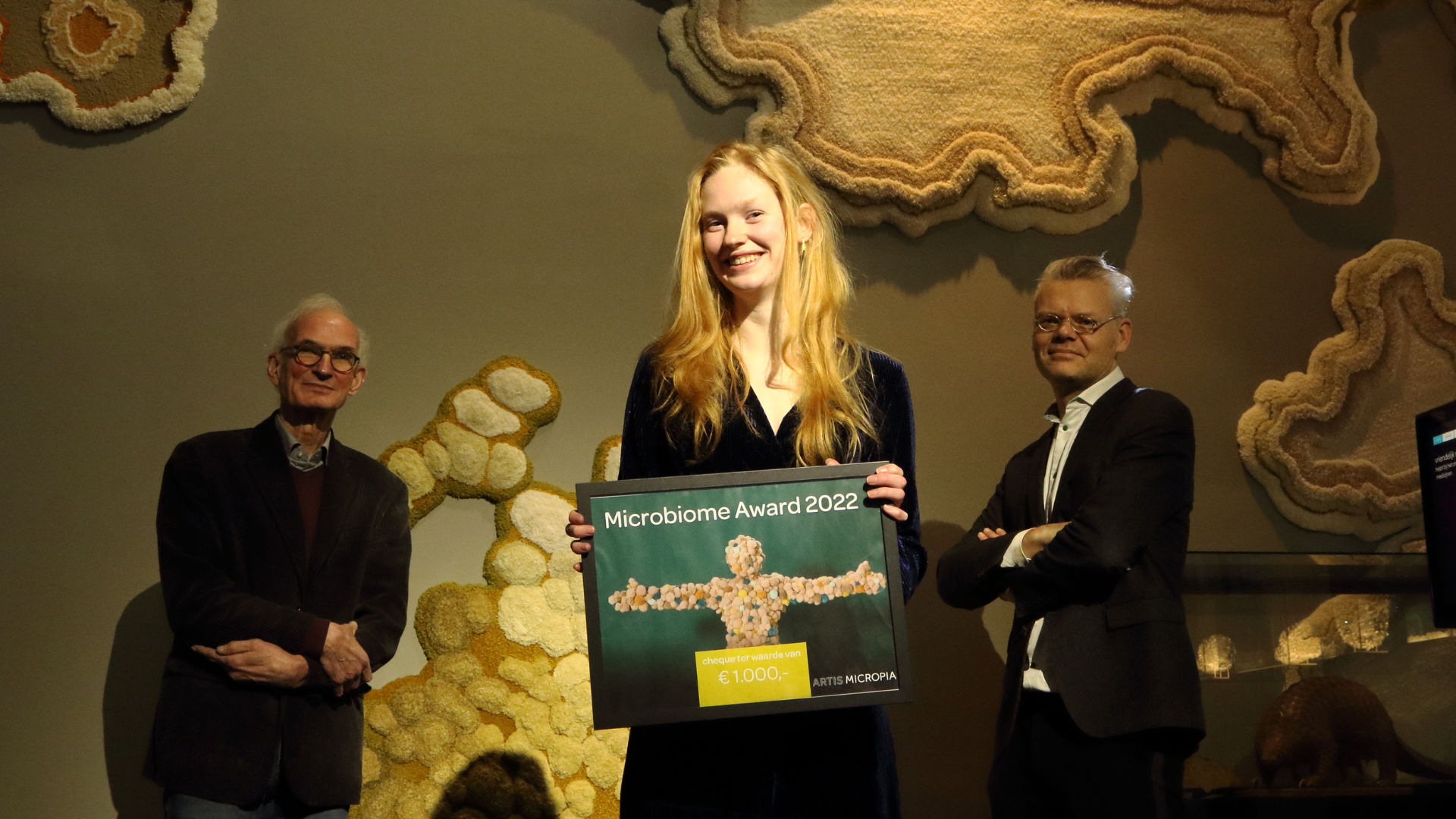Negative effects
Outside, our skin is constantly exposed to sunlight full of ultraviolet radiation. This radiation is harmful to the DNA in our cells which can lead to skin cancer. Sunscreen products reduce these negative effects of UV radiation. However, there are different types of UV rays, and not all of them are captured by sunscreens. Many products are able to reduce the effects of UVB radiation and to some extent that of UVA. However, there is a need for new UV filters that protect against UVA1 radiation (~340-400nm). Because this radiation penetrates deeper into the skin, the chance of potential negative effects is high. However, many synthetic UV filters in sunscreens harm marine ecosystems by bleaching corals and allowing the ingredients to accumulate in a variety of marine life. Isabel Houtkamp therefore wants to look for new UVA1 protective products of natural origin.
Nature has the solution
She therefore dives into nature. Literally. Houtkamp wants to look for microbes in French Alpine lakes, where a lot of UV radiation can be found due to the high altitude. Chances are, those microbes have developed methods to protect themselves from its harmful effects. For example, several potential UV filters against UVA2 and UVB radiation have already been identified in cyanobacteria and other microalgae . But not yet against the dangerous UVA1. Unfortunately, little is known about microbial life in these aquatic environments. Fortunately, today microbiology has many methods to map microbial biodiversity and to unravel their functions based on genetic material. Those methods are called metagenomics. By inserting the genes of the Alpine lake microbes - which may offer protection against UVA1 - into easy-to-grow E. coli bacteria , Houtkamp can test which species can be used for the new sunscreen.
Huge potential
However, when the right microbe(s), and with it their anti-UVA1 substances, have been found, we’re not there yet. It still requires a lot of research into the safety, production methods and effectiveness of the product before it will appear on the market in a tube or jar. But the jury, consisting of professor Ger Rijkers, Micropia professor Remco Kort and head of Micropia Jasper Buikx, recognized the need for this environmentally friendly product. The potential of the product – reducing skin cancer, protecting our oceans, and producing sunscreen products more sustainably – is enormous despite the challenges. Fortunately, the diversity and skill of microbe life, and with it the chance of a successful product, is much greater.
Micropia Microbiome Award
Microbiology examines the smallest organisms on earth, such as fungi, yeasts and bacteria. These microorganisms are the most powerful life on Earth. The Micropia Microbiome Award was created to get students excited about microbiology. Every year, Micropia professor Remco Kort hosts the lecture series 'Human Microbiome in Health and Disease' in Micropia about the human microbiome and how it functions in disease and health. At the end of the series, the students write a research proposal with their newly acquired knowledge about the microbiome and recent research into it. The proposal describes an innovative application of microbes, which can benefit our health or that of our planet.

